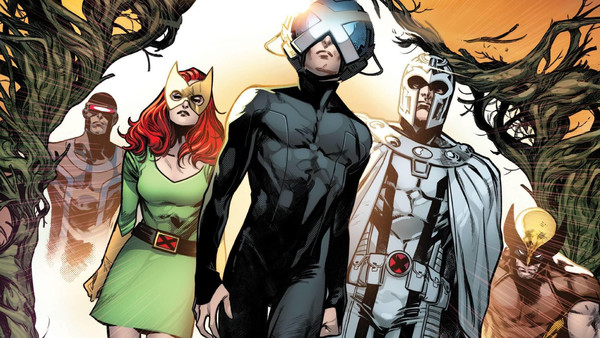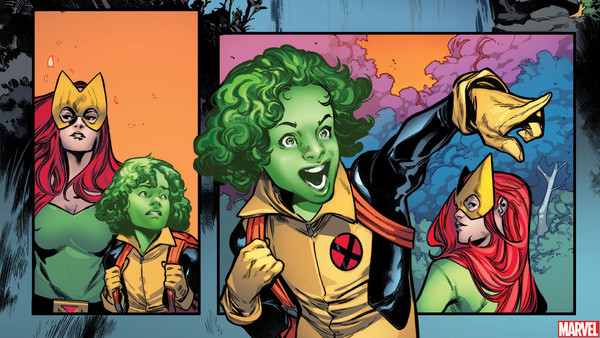Marvel Just Changed The X-Men Forever
Hickman and Larraz's House of X marks a triumphant return for Marvel's mutants. What did we learn?

After months of waiting, Jonathan Hickman's grand plan to reinvent the X-Men has just commenced. Not only does it live up to the hype, in that it galvanises a Marvel property that has often found itself pushed to the sidelines in recent years, it also promises a bold new future for the X-Men as a whole, throwing out the old rule book by introducing a new status-quo that's sure to provoke a ton of questions as the series progresses.
House of X is just the first chapter of Hickman's grand design, but it's a fantastic introduction. It introduces a complex and fascinating world to explore, broaches the thematic implications of the mutant metaphor in the contemporary zeitgeist and, just as editor Jordan D. White promised at SDCC 2019, the issue also divests from the driving force behind the last decade's X-Books - that of mutants as a declining force post-House of M.
There is a lot to unpack, as Hickman lays on the exposition thick and fast, but it never becomes disorienting. Artists Pepe Larraz and Marte Gracia bring the reader up to speed in stunning detail, realising Hickman's script with a vibrant flair whilst also breaking up the action with graphs that explore the make-up of House of X's world, including the new mutant nation of Krakoa, the strategies of Charles Xavier, and something known as the Orchis Protocol; humanity's new operation to prevent an upcoming doomsday scenario.

Again, there's a lot to unpack, but it's easily digestible and exciting to discover - which brings us to the narrative thrust behind House of X, what it changes about the X-Men specifically, and how it reappraises Marvel's mutant allegory for our own milieu.
House of X sees Charles Xavier as the leader of a new mutant nation, called Krakoa. Located in the Pacific, Krakoa is a bastion for mutantkind that boasts advanced medicine, technology, and identity. Identity is the most important takeaway to bear in mind, but for now let's stay with Xavier. Charles has seemingly united the X-Men and has devised a new solution to protect mutants; use Krakoa's own advancements as leverage to dissuade human aggression.
As the comic explains, Xavier and his mutants have devised three drugs for humankind - drug L, I and M. The first possesses properties that can extend life, the second contains a universal antibiotic no bacteria can resist, and the third cures all mental diseases. In return, all Krakoa asks is that humans leave their nation alone, a point Magneto conveys to the first human ambassadors to step forth on mutant soil later in the issue.
Meanwhile, we learn that a covert agency known as the Orchis Protocol is stationed in a sentinel satellite, seemingly to counteract Xavier's influence. It's early days, but there's no denying the presence of a sentinel is still as ominous as ever. Given numerous organisations make up Orchis, such as S.H.I.E.L.D., S.W.O.R.D. and even Hydra, this new coalition looks especially threatening.
Article continues on next page...